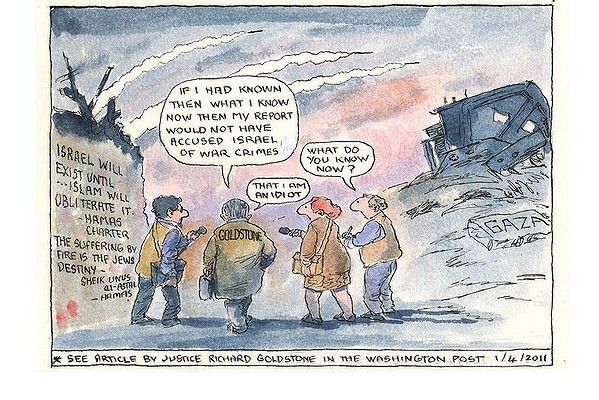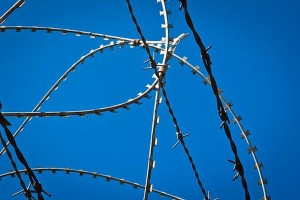Melanie Phillips: Puncturing the big lie of Palestinian identity
Nazmi al Jubeh, an associate professor of history and archaeology at Birzeit University outside Ramallah, told a UN conference last June that there was no evidence linking the Jews to Jerusalem.
Thus far, so predictably mendacious. But thanks to the Elder of Zion website, a piece has now surfaced written by al Jubeh in 2006 in which he demolished the myth of Palestinian identity and made plain that it was invented solely to destroy Zionism and Israel.
Not that he acknowledged the Jews’ own history in the land. He made correct but passing reference to the Romans renaming Judea as “Palestina” in order “to challenge the memory of the Jews” after the Romans put down “the Jewish rebellion.”
Yet he didn’t provide the context for this by explaining that the Romans had crushed the Jewish kingdom, which had existed for centuries before being conquered in turn by successive waves of colonial invaders.
Instead, he claimed that the “Palestinian Jews, an essential component of the Palestinian people, started at the beginning of the twentieth century to identify themselves with the Zionist movement, thus separating themselves from the rest of their own people … ”
Despite this egregious and absurd falsification of Jewish history, the striking element of al Jubeh’s account is his admission of what we know to be objectively true – that, from the earliest times, there was no Palestinian identity.
Myth: Palestine was heavily populated with Arabs before the Zionists arrived.
For many centuries, Palestine was a sparsely populated, poorly cultivated, and widely neglected expanse of eroded hills, sandy deserts, and malarial marshes. This was Mark Twain’s description when he visited in 1867:To European Leaders, Jewish Flesh Is Cheap
A desolate country whose soil is rich enough, but is given over wholly to weeds—a silent mournful expanse.
A desolation is here that not even imagination can grace with the pomp of life and action?.?.?.?We never saw a human being on the whole route.
There was hardly a tree or a shrub anywhere. Even the olive and the cactus, those fast friends of the worthless soil, had almost deserted the country (Mark Twain, The Innocents Abroad (London, 1881).
As late as 1880, the American consul in Jerusalem reported the area was continuing its historic decline. “The population and wealth of Palestine has not increased during the last forty years,” he said (Melvin Urofsky, American Zionism from Herzl to the Holocaust (Bison Books: 1995), p. 29).
Take a look at some of the photos from the late 19th and early 20th century to see the desolation Twain talked about:
The Oslo Accords were based on the illusion that the PLO could totally change and suddenly become a "partner for peace"... It soon became clear that the Palestinian Authority was still the PLO: terrorist attacks quickly multiplied. The money received by the Palestinian Authority was used to continue incitement to murder and payments to incentivize it.
In 1967, a change of strategy took place. No one, the PLO decided, would speak of a "war for the destruction of Israel". Instead, they would call it a "war of national liberation". From then on, the PLO was presented as a "liberation movement".
Arabs who had left Israel in 1948-49, many of whom remained in refugee camps, were defined as the "Palestinian people"; in this way were the Palestinian people invented. As PLO Executive Council member Zuheir Mohsen said in 1977: "The Palestinian people does not exist... Only for political and tactical reasons do we speak today about the existence of a Palestinian people..."
The leaders of the Palestinian Authority have, in fact, never stopped resorting to "armed struggle", the name they give to terrorism and murdering Jews. To "frustrate all the schemes of Zionism", they invented the Palestinian people; their "struggle for national liberation" gave them international recognition. By renaming terrorism and murdering Jews "armed struggle", they made their use of terrorism and murder acceptable. By signing the Oslo Accords, they could appear interested in peace without having to renounce terrorism. They could even demonize Israel and give it the image of a barbaric and cruel country while continuing to murder Jews.
"If you look at history... what ends conflicts is one side giving up.... and then it's over.... in World War II, [the Germans] were forced to give up... and note how much they benefited by giving up." -- Daniel Pipes, historian, November 19, 2017.
No U.S. president had ever told Palestinian leaders that they were lying, or had required them to stop inciting murder and financing terrorism, and no U.S. president had ever decided to cut funding for the Palestinian Authority as long as it continued to incentivize terrorism. President Donald J. Trump did.












































